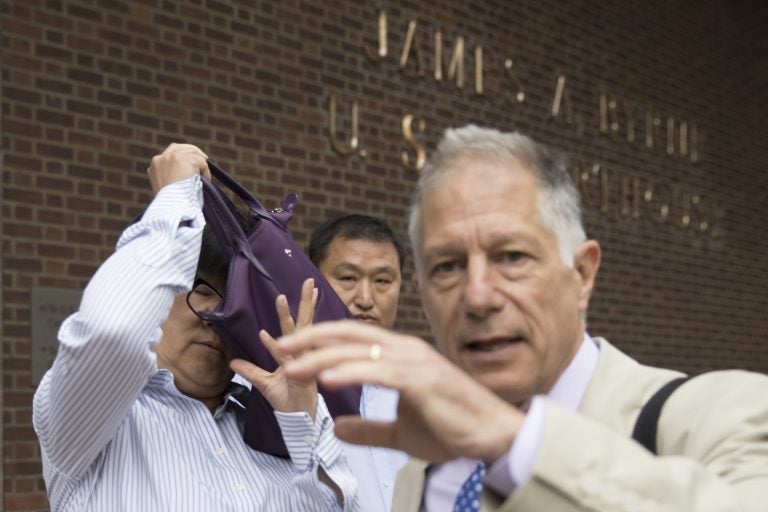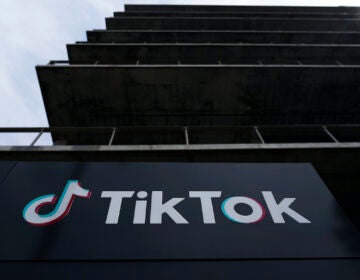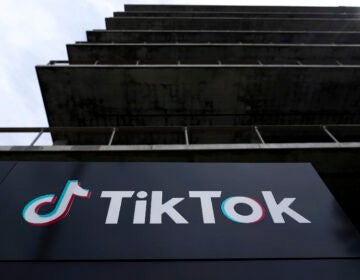Researcher tried to steal GSK drug secrets in case involving Upper Merion workers
Tao Li, 45, of San Diego, conspired to steal confidential information from the pharmaceutical giant about anti-cancer drugs under development.

Yu Xue, left, accompanied by her attorney Peter Zeidenberg attempts to block her face with her bag as they exit the federal courthouse in Philadelphia last month. A co-conspirator, Tao Li, pleaded guilty Friday to stealing biopharmaceutical trade secrets from GlaxoSmithKline in what prosecutors said was a scheme to set up companies in China to market them. (AP Photo/Matt Rourke)
A California scientist pleaded guilty Friday in federal court in Philadelphia to conspiring to steal trade secrets from GlaxoSmithKline and illegally transferring the privileged information to a company doing business in China.
It is the second guilty plea federal prosecutors have secured after a sweeping grand jury indictment was filed against five people in early 2016 over the trade-secret theft from GSK.
Prosecutors alleged that Tao Li, 45, of San Diego, stole confidential information from the pharmaceutical giant about anti-cancer drugs under development.
Li was in communication with employees at one of the company’s research facilities in Upper Merion. They included Lucy Xi and Yu Xue, who would download and send the trade secrets to Li in email or else transfer them in person on a thumb drive. Meanwhile, Li was working between San Diego and China setting up a rival company called Renopharma, based in Nanjing, China.
In an email obtained by federal investigators, Li wrote that the scheme was “a fast way to produce a ‘real’ drug in China.”
Federal authorities say Renopharma, which had financial backing from the Chinese government, was in essence a repository of stolen information from GSK. Research and development of such anti-cancer products can exceed $1 billion, authorities said.
The biopharmaceutical data stolen from GSK included detailed information about multiple products under development and information about manufacturing the products.
In court Friday, Li’s lawyer said his client did not know what he shared were trade secrets at the time he was providing them.
But U.S. District Judge Joel Slomsky said, under federal law, prosecutors would not have to show that Li knew what he was sharing was a trade secret, only that it was privileged company information.
Li will be sentenced on Jan. 4. The maximum possible sentence is a decade in federal prison.
On Jan. 5, 2016, FBI agents arrested Li and seized his personal computer, where they found numerous GSK documents that included trade secrets and other confidential information that he’d shared with his co-conspirators. Xue has also pleaded guilty in the case and is awaiting sentencing.
An indictment announced shortly after Li’s arrest targeted a total of five people who allegedly conspired to steal trade secrets from GSK to assist a Chinese-based company.
“Dr. Li illegally stole trade secrets to benefit himself and his company, which was financed by the Chinese government,” said Bill McSwain, the U.S. attorney for the Philadelphia area. “The lifeblood of companies like GSK is its intellectual property, and when that property is stolen and transferred to a foreign country, it threatens thousands of job here in America.
“Not only is this a serious crime, but it is literally a form of economic warfare against American interests. Such criminal behavior must be prosecuted to the fullest extent of the law.”
Since the case became public, GSK officials said they have bolstered cybersecurity measures to ensure that proprietary research data can be better protected.
After Friday’s hearing, Assistant U.S. Attorney Robert Livermore said if trade secrets about biopharmaceutical research are not protected, companies like GSK would collapse.
“GSK puts in an extraordinary amount of work into developing that information,” Livermore said. “A company like GSK will have thousands of people working on these projects. It takes many, many years to develop this stuff. And nobody wants it to get stolen once they develop it.”
Federal prosecutors in Philadelphia have a somewhat flawed record in cases attempting to combat the foreign stealing of corporate secrets. Four months after filing charges against Temple University physics professor Xi Xiaxing, the case was withdrawn over an apparent misunderstanding about the technical scientific research he was accused of sharing overseas.
Xi has since filed a still-pending civil rights lawsuit against the Department of Justice seeking compensation for the damage to his reputation.
WHYY is your source for fact-based, in-depth journalism and information. As a nonprofit organization, we rely on financial support from readers like you. Please give today.




